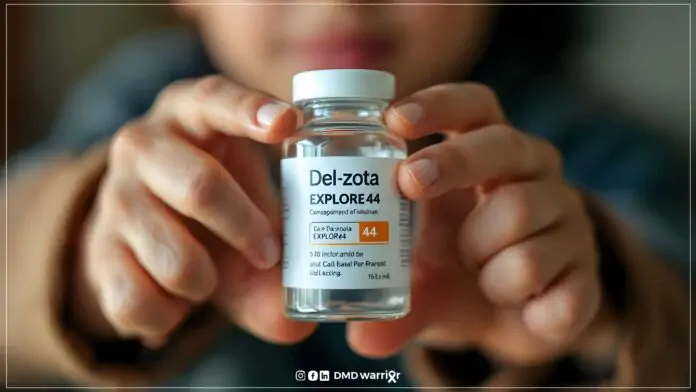A phase 1/2 EXPLORE44 study (NCT05670730) is now being conducted to evaluate Del-zota, which was developed with the intention of restoring the dystrophin reading frame and producing a dystrophin protein that is functional and internally truncated.
At the 2025 Muscular Dystrophy Association (MDA) Clinical & Scientific Conference, which took place in Dallas, Texas, from March 16-19, the results of this trial, which was randomized, double-blind, and controlled with a placebo, were recently presented. Based on the findings, it was demonstrated that Del-zota has the ability to boost dystrophin production and exon skipping while simultaneously lowering creatine kinase (CK) counts.
The chief scientific officer at Avidity, Dr. Michael Flanagan, was interviewed by NeurologyLive to discuss Del-zota and the phase 1/2 results in greater detail. He explained the unique delivery method that targets exon 44 and how it varies from medicines that have already been approved and others under investigation. A confirmatory phase 3 trial, an open-label extension, and a possible biologics license application are among the future plans for the drug that Flanagan also gave a preview of.
Table of Contents
Phase 1/2 EXPLORE 44 Trial Design
- Randomized, placebo-controlled, double-blinded trial
- 24 participants with DMD44 (ages 7-27, both ambulatory and nonambulatory)
- Treatment arms: 5 mg/kg every 6 weeks vs 10 mg/kg every 8 weeks vs placebo (3:1 randomization)
- Muscle biopsies performed at baseline and one month after third dose
Safety and Tolerability
- Favorable safety profile with most adverse events mild to moderate
- Most common adverse events: procedural pain and headache
- Two participants discontinued: 1 due to anaphylaxis, 1 due to moderate infusion-related reaction
- No symptomatic hemoglobin changes, no hypomagnesemia, no deaths
Biomarker Outcomes
- Consistent and high PMO muscle concentration in both dosing groups
- Significant exon 44 skipping: 37% in 5 mg/kg group, 43% in 10 mg/kg group
- Dystrophin production increased to approximately 25% of normal levels on average
- Up to 58% of normal dystrophin levels observed across all exon 44 amenable genotypes
Creatine Kinase (CK) Levels
- Consistently decreased CK levels to near normal in treated participants
- CK reductions sustained near upper limit of normal from day 70-140 in the 5 mg/kg group and day 84-140 in the 10 mg/kg group
- Greater than 80% reduction in CK levels compared to baseline
- Reductions sustained for up to 1 year in the open-label extension
Learn More: Next Generation Exon Skipping Therapies



